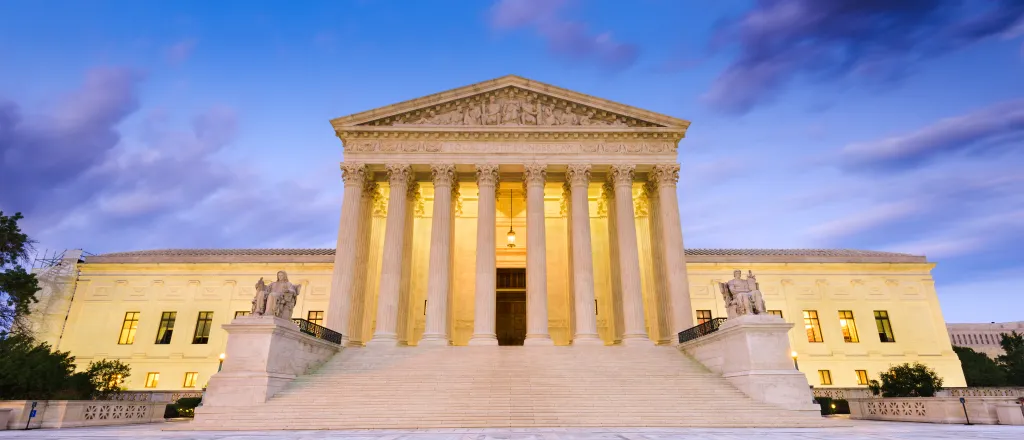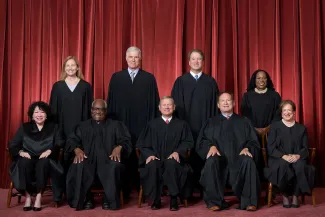
Poll: Voters say future SCOTUS appointments are top-of-mind issue
© iStock - SeanPavonePhoto
Click play to listen to a version of this article.
(Arizona News Connection) Former President Donald Trump has taken credit for placing three conservative justices on the U.S. Supreme Court.
Monday, the court awarded him a major win by giving him immunity from criminal prosecution for what are known as "official acts" taken while in office.

Memebers of the Supreme Court of the United States 2022 - WIkimedia - Public Domain
New data show a majority of voters around the country are paying attention and understand the impact the next president could have on the future of the U.S. Supreme Court.
Sarah Harris, deputy communications director for Stand Up America, said the winner of the November election could select and appoint up to four new justices, reshaping the legal precedent in the U.S. for years to come.
"It's important to think about generations after us," said Harris. "Many of the people who could potentially be put on the bench will be on there for 50 to 60 years, potentially as justices continue to be appointed younger and younger."
Harris noted four of the current justices will be in their 70s in 2025 when the next president takes office. Her organization's recent poll finds nearly 75 percent of voters say the selection and confirmation of future justices will be important when deciding who to support in the upcoming presidential and Senate races.
Some argue the scandal-ridden Supreme Court makes the case for term limits. The Tenure Establishment and Retirement Modernization Act, led by U.S. Representative Hank Johnson, D-Georgia, would create 18-year term limits for current and future justices as well as provide two appointments to the court in each four-year presidential term.
Harris said the justices should not be treated as if they're above the law.
"No one deserves power for life. What we've seen is that the court cannot regulate itself, and so having term limits would be really, really important," she continued.
The TERM Act was initially introduced in 2022, but died in committee. It was reintroduced last year, with no action since. But that proposal, and other Supreme Court reform initiatives, have faced pushback from Republicans who argue it would jeopardize the separation of powers between Congress and the court.

















